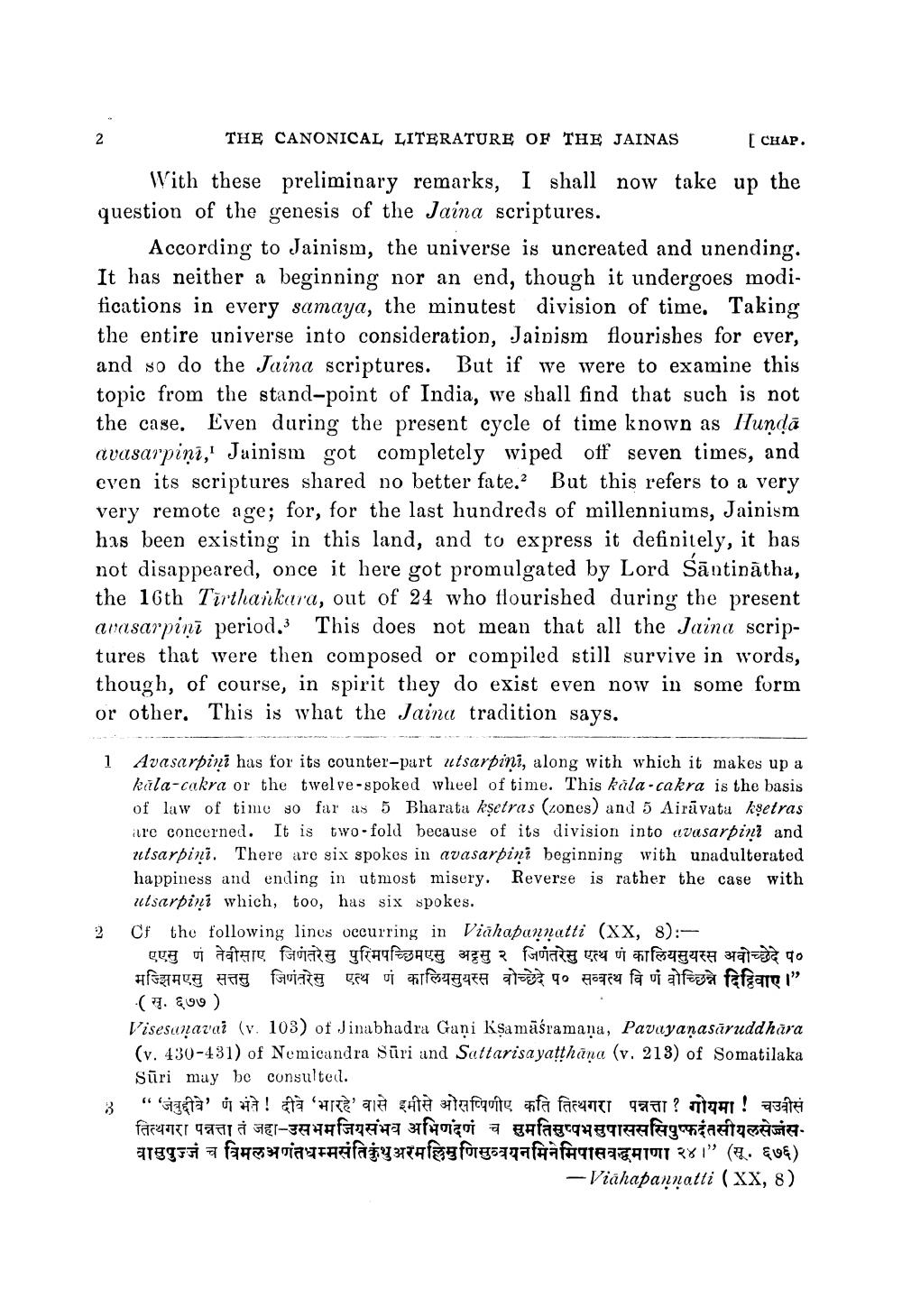________________
THE CANONICAL LITERATURE OF THE JAINAS
[ CHAP.
With these preliminary remarks, I shall now take up the question of the genesis of the Jaina scriptures.
According to Jainism, the universe is uncreated and unending. It has neither a beginning nor an end, though it undergoes modifications in every samaya, the minutest division of time. Taking the entire universe into consideration, Jainism flourishes for ever, and so do the Jaina scriptures. But if we were to examine this topic from the stand-point of India, we shall find that such is not the case. Even during the present cycle of time known as Mundā avasarpiņi,' Jainism got completely wiped off seven times, and even its scriptures shared no better fate. But this refers to a very very remote age; for, for the last hundreds of millenniums, Jainism has been existing in this land, and to express it definitely, it bas not disappeared, once it here got promulgated by Lord śāntinātha, the 16th Tirthaikara, out of 24 who flourished during the present avasarpini period. This does not mean that all the Jaina scriptures that were then composed or compiled still survive in words, though, of course, in spirit they do exist even now in some form or other. This is what the Jaina tradition says.
1
Avasarpini has for its counter-part utsarpini, along with which it makes up a kila-cakra or the twelve-spoked wheel of time. This kala-cakra is the basis of law of time so far as 5 Bharata kşetras (zones) and 5 Airāvata kşetras tre concerned. It is two-fold because of its division into avasarpini and utsarpini. There are six spokes in avasarpini beginning with unadulterated happiness and ending in utmost misery. Reverse is rather the case with utsarpiņi which, too, has six spokes. Cf the following lines occurring in Viāhapannatti (xx, 8):
एएमु णं तेवीसाए जिणंतरेसु पुरिमपच्छिमएसु अट्टसु २ जिणंतरेसु एत्थ णं कालियसुयस्स अवोच्छेदे ५० मज्झिमएसु सत्तसु जिणंतरेसु एत्थ णं कालियसुयस्स वोच्छेदे प० सम्वत्थ वि णं वोच्छिन्ने दिद्विवाए।"
(1.999) Visesanavai (v. 103) of Jinabhadra Gani Kşamāśramana, Pavayaņasuruddhāra (v. 430-431) of Nemicandra Sūri and Sattarisayatthāna (v. 213) of Somatilaka Sūri may be consulted.
" 'जंबुद्दीवे' णं भंते ! दीवे 'भारहे' वासे इमीसे ओस प्पिणीए कति तित्थगरा पन्नत्ता ? गोयमा! चउवीसं तित्थगरा पन्नत्ता तं जहा-उसभमजियसंभव अभिणदणं च सुमतिसुप्पभसुपासससिपुप्फदंतसीयलसेसवासुपुज्जं च विमलअणंतधम्मसंतिकुंथुअरमल्लिमुणिमुव्वयनमिनेमिपासवद्धमाणा २४।" (सू. ६७६)
– Viahapannatti (XX, 8)
३




